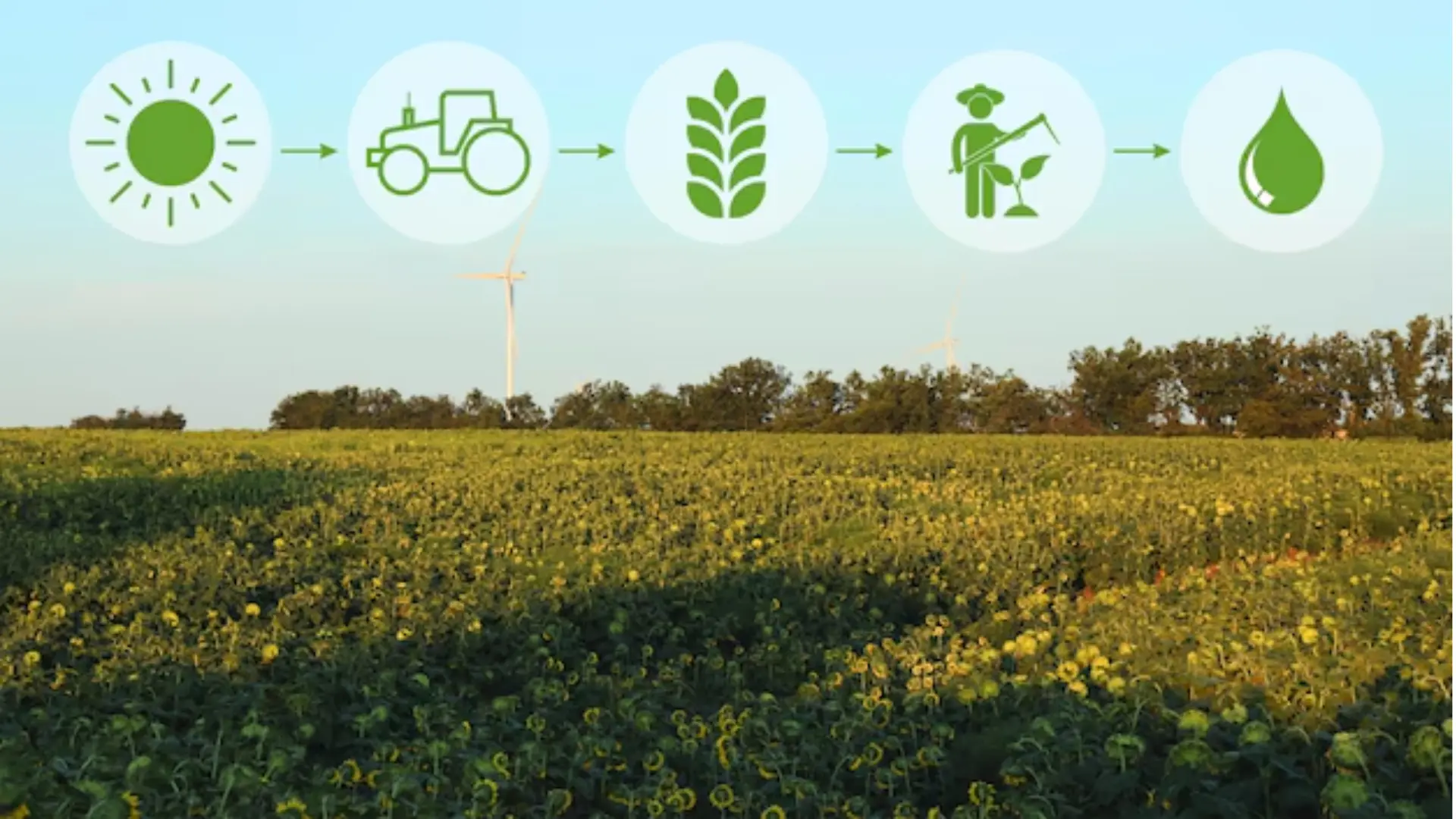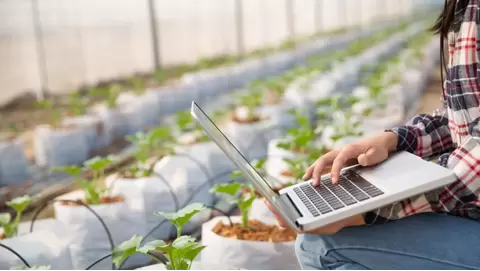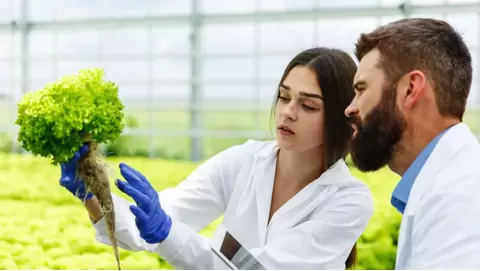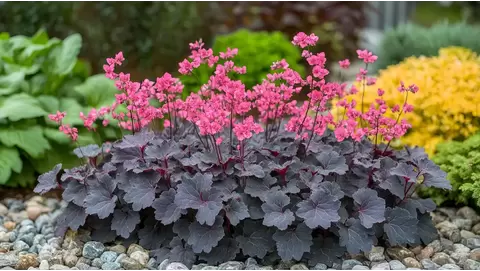
Sustainable Growth for Farming: Best Methods
- The global population is expected to exceed 9 billion by 2050, driving the need for sustainable agriculture.
- Healthy soil can increase crop yields by up to 30% compared to poorly managed soil.
- Regenerative farming can help sequester up to 1.3 billion metric tons of carbon per year, reducing greenhouse gas emissions.
- Using efficient irrigation systems can reduce water usage by up to 50% in some regions.
- The average time to get results from Farmer Freeman's EZ-XY Plant DNA Sex Test is 1-2 business days.
- Sustainable farming practices, such as crop rotation and organic fertilizers, can improve soil fertility and prevent soil erosion.
- Over 4,000 growers have rated Booming Acres with a 4.9-star average, highlighting the company's trusted solutions in mushroom cultivation.
Climate change, resource loss, and population increase are just a few of the growing global concerns that force the agriculture sector to adapt. One crucial answer that has arisen is sustainable growth for farming, which aims to balance productivity with responsibility for the environment.
.webp?1735211517523)
The focus has shifted from just growing food to building resilient ecosystems, protecting natural resources, and guaranteeing food security for the future. Companies like Booming Acres, Farmer Freeman, and Soil Seed & Water are at the center of this change. Each is essential in promoting eco-friendly methods that give people more control over their gardening, farming, and other forms of cultivation.
Importance of Sustainable Growth in Farming
Agricultural techniques that ensure future generations may continue to meet their own food and resource demands are known as sustainable growth practices. This approach aims to achieve a balance between social equality, environmental health, and economic viability.
Why is it important?
- Rising Demand for Food: The world's population is predicted to surpass 9 billion by 2050, making sustainable practices crucial for ensuring food security in the face of rising demand.
- Environmental Preservation: To preserve the environment, farmers must abandon unsustainable practices that reduce soil nutrients, contaminate water supplies, and increase greenhouse gas emissions.
- Economic Stability: Sustainable farming practices can lower costs while improving yields, allowing farmers to enjoy long-term profitability.
- Community Well-Being: Stabilizing local food systems, biodiversity, and rural livelihoods promotes community well-being.
To ensure the future of the planet while keeping agricultural productivity high, people must move to sustainable growth.
Booming Acres: Unlock the Potential of Mushroom Cultivation
Anyone interested in mushroom cultivation can benefit from Booming Acres. This business elevates mushroom growth to a new level by providing high-quality kits and meticulously designed materials. Booming Acres offers solutions that promote maximum development and health for all gardeners, from amateurs to experienced cultivators.
Why Choose Booming Acres?
| Feature | Benefit |
|---|---|
| Beginner-Friendly | Simple, easy-to-follow instructions make cultivation hassle-free. |
| High-Quality Materials | OMRI-certified substrates ensure sustainable and healthy growth. |
| Exceptional Service | Expert support to assist with all your growing needs. |
| Trusted by Growers | Over 4,000 5-star reviews and a 4.9 average rating. |
Soil Health as the Foundation of Sustainability
Healthy soil is at the core of sustainable farming. It supports plant growth, retains water, and stores carbon. But what makes soil health so crucial?
Key Benefits of Healthy Soil:
- Enhanced Productivity: Nutrient-rich soil leads to higher crop yields.
- Erosion Prevention: Properly managed soil stays intact during heavy rains and winds.
- Carbon Sequestration: Healthy soils trap carbon, reducing greenhouse gas emissions.
Best Practices for Soil Health:
- Regular Testing: Analyze pH, nutrient levels, and organic matter content.
- Organic Inputs: Use compost, manure, and biochar to improve soil fertility.
- Crop Rotation: Alternate crops to prevent nutrient depletion.
Soil Seed & Water Company: Pioneering Regenerative Growth Solutions
From small-scale organic farms to urban gardens, Soil Seed & Water Company has a solution for every grower's needs in regenerative agriculture. With its rich range of soil additives, fertilizers, and composts, cultivators are empowered to embrace sustainable methods and boost plant health.
Tailored Solutions for Every Cultivator
Soil Seed & Water serves a wide variety of growers, all of whom have specific requirements:
- Home Gardeners & Urban Farmers: Grow nutrient-dense food in cramped quarters with Ready Go Garden potting soil, perfect for urban farmers and home gardeners.
- Specialized Farmers: Products such as Bacchus Vineyard Blend and CannaBag cater specifically to the needs of cannabis growers and vineyard managers.
- Drought Resilient Agriculture: Dan's Drought Mix, a drought-resistant agricultural practice, offers innovative solutions for water-scarce areas.
Principles of Sustainable Agriculture
Sustainable agricultural productivity growth is essential for the future of agriculture and food systems, ensuring that we can meet the rising global demand for food while preserving the environment. By implementing sustainable practices, farmers can enhance food and nutrition security, improving access to healthy, nutritious food for communities worldwide.
These practices not only boost food production but also safeguard natural resources, creating a more resilient farming system that can adapt to climate change and support long-term food security. Sustainable agriculture is based on the idea that farming methods should benefit the land, society, and the environment. Important guidelines consist of:
Maximizing Efficiency:
- Reduce water waste by collecting rainwater and using drip irrigation.
- Reduce trash by implementing recycling and composting programs.
Improvement of Biodiversity:
- Soil fertility can be preserved through encouraging crop rotation and intercropping.
- Minimize the use of pesticides and cultivate a variety of crops to safeguard pollinators.
Preservation of Soil:
- To stop soil erosion, cover crops and use less tilling.
- To improve the structure of the soil, use organic fertilizers.
Community Engagement:
- Back local marketplaces and advocate for fair labor standards.
- Teach farmers how to use sustainable practices.
Optimize Your Harvest with Farmer Freeman: Revolutionizing Plant DNA Testing
Using modern DNA testing, Farmer Freeman revolutionizes the cultivation environment by enabling quick, precise, and easily accessible plant sex identification. Farmer Freeman's creative solutions will allow you to optimize yields, conserve resources, and simplify your growing process, regardless of whether you're a commercial or home grower.
The EZ-XY Advantage: Early Sexing for Maximum Yields
Growers waste time, space, and resources waiting for plants to mature using traditional methods of plant sex identification, and they finally have to eliminate male plants. To address this issue, Farmer Freeman has developed the EZ-XY Plant DNA Sex Test, which can determine a plant's sex as early as seven days after it has sprouted.
Benefits:
| Feature | Impact on Growers |
|---|---|
| Early Detection (7 Days) | Save time, space, and nutrients by removing male plants early. |
| High Accuracy (99.5%) | Make informed decisions with confidence. |
| Fast Results (1–2 Days) | Quick turnaround for optimized planning. |
| Beginner-Friendly Kits | Accessible for growers of all levels. |
Innovative Fertilizers and Soil Amendments
Modern fertilizers and soil amendments are designed to provide plants with essential nutrients while preserving environmental health. These innovations are revolutionizing the way farmers approach soil fertility.
Types of Innovative Fertilizers:
- Slow-Release Fertilizers:
- Provide nutrients gradually, reducing waste.
- Lower the risk of nutrient runoff into waterways.
- Biofertilizers:
- Contain beneficial microbes like nitrogen-fixing bacteria.
- Enhance soil nutrient availability naturally.
- Customized Blends:
- Tailored to specific soil and crop requirements.
- Maximize efficiency and minimize over-fertilization.
The Bottom Line
Sustainable farming techniques are becoming more than an option; they are a must in the face of the world's increasing problems, including climate change, resource depletion, and population growth. To ensure that future generations can access the resources they need for food and livelihood, people must balance productivity with environmental care. Only then can people embark on the journey toward a sustainable future.
Sustainable farming is on the rise, and businesses like Booming Acres, Farmer Freeman, and Soil Seed & Water are helping this movement to spread the word. These companies are simplifying growing plants while protecting the environment by developing novel products like regenerative soil supplements, improved plant DNA testing, and mushroom production kits.
Adopting sustainable agriculture practices may help farmers improve their output, lessen their influence on the environment, and help their communities thrive. When soil health is maximized, water use efficiency is improved, and revolutionary innovations are used, the future of farming appears brighter and more sustainable.
FAQ
1. Why is sustainable growth necessary for farming?
Sustainable growth is crucial for farming because it helps ensure food security for future generations, preserves the environment by reducing soil erosion and pollution and supports economic stability by increasing long-term profitability and resource efficiency.
2. How can DNA testing improve my farming practices?
DNA testing, like the EZ-XY test from Farmer Freeman, allows growers to identify the sex of their plants early. This prevents the waste of resources on male plants and optimizes space and nutrient use, ultimately increasing yields and improving efficiency.
3. What are the benefits of using regenerative farming practices?
Regenerative farming practices enhance soil health, promote biodiversity, increase water retention, and reduce carbon emissions. These methods lead to more sustainable farming by replenishing the soil and protecting ecosystems, resulting in healthier crops and a more resilient farming system.
Disclaimer: This material is for informational purposes only and should not be relied on for legal, medical, financial, or any other form of professional advice.
Sources:
Bard College - The Importance of Sustainable Agriculture—The Future of Farming
European Commission - Sustainable Agricultural Practices and Methods
Springer Nature Link - Innovative Fertilizers and Soil Amendments Based on Hydrochar from Brewery Waste

























